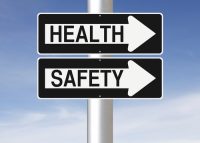10 Good Reasons for Motivating Your Employees to Work Safely
Failure to strongly encourage safe work habits can have costly consequences, whereas motivating employees to work safely has important benefits. 1. According to the 2013 Liberty Mutual Workplace Safety Index, the most disabling workplace injuries and illnesses in 2011 amounted to $55.4 billion in direct U.S. workers compensation costs. This translates into more than a […]










